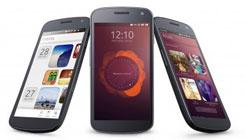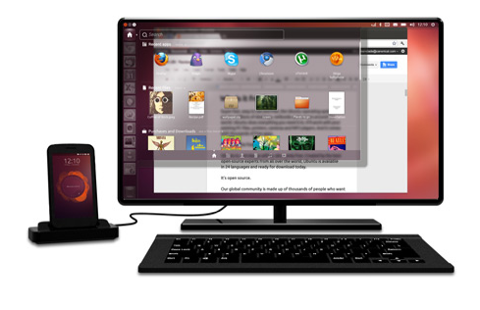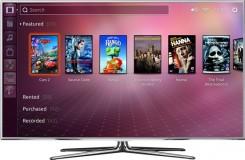 Some pundits have questioned the viability of yet another mobile OS in an already crowded marketplace, while others applaud Canonical's innovation. Personally, I first thought a new Ubuntu phone might be a minor success. But whether it's a late entry or not, we could see a lot of budget devices running what really is a slick OS. Still, before the first handsets are released around 2014, the Ubuntu app market has to show exceptional growth. As a first step, Canonical's launched an app marketplace ahead of the OS. Commercial software is allowed, as are upgrades and add-ons. Right now, there's no charge for joining the developer program, though a 20 percent transaction fee is required on sales. It's a good time to get ahead of the curve and sign up.
Some pundits have questioned the viability of yet another mobile OS in an already crowded marketplace, while others applaud Canonical's innovation. Personally, I first thought a new Ubuntu phone might be a minor success. But whether it's a late entry or not, we could see a lot of budget devices running what really is a slick OS. Still, before the first handsets are released around 2014, the Ubuntu app market has to show exceptional growth. As a first step, Canonical's launched an app marketplace ahead of the OS. Commercial software is allowed, as are upgrades and add-ons. Right now, there's no charge for joining the developer program, though a 20 percent transaction fee is required on sales. It's a good time to get ahead of the curve and sign up.
Canonical Wants More Apps for the Ubuntu Smartphone
Canonical's new Ubuntu mobile OS isn't yet available as a package download to anyone interested in trying it out, but it holds great promise. The target market is equipment manufacturers who can use it to run both high-end and entry-level devices. While none are available yet, Samsung has promised Galaxy Nexus owners there'll soon be a test package for them to download.  Some pundits have questioned the viability of yet another mobile OS in an already crowded marketplace, while others applaud Canonical's innovation. Personally, I first thought a new Ubuntu phone might be a minor success. But whether it's a late entry or not, we could see a lot of budget devices running what really is a slick OS. Still, before the first handsets are released around 2014, the Ubuntu app market has to show exceptional growth. As a first step, Canonical's launched an app marketplace ahead of the OS. Commercial software is allowed, as are upgrades and add-ons. Right now, there's no charge for joining the developer program, though a 20 percent transaction fee is required on sales. It's a good time to get ahead of the curve and sign up.
Some pundits have questioned the viability of yet another mobile OS in an already crowded marketplace, while others applaud Canonical's innovation. Personally, I first thought a new Ubuntu phone might be a minor success. But whether it's a late entry or not, we could see a lot of budget devices running what really is a slick OS. Still, before the first handsets are released around 2014, the Ubuntu app market has to show exceptional growth. As a first step, Canonical's launched an app marketplace ahead of the OS. Commercial software is allowed, as are upgrades and add-ons. Right now, there's no charge for joining the developer program, though a 20 percent transaction fee is required on sales. It's a good time to get ahead of the curve and sign up.
 Some pundits have questioned the viability of yet another mobile OS in an already crowded marketplace, while others applaud Canonical's innovation. Personally, I first thought a new Ubuntu phone might be a minor success. But whether it's a late entry or not, we could see a lot of budget devices running what really is a slick OS. Still, before the first handsets are released around 2014, the Ubuntu app market has to show exceptional growth. As a first step, Canonical's launched an app marketplace ahead of the OS. Commercial software is allowed, as are upgrades and add-ons. Right now, there's no charge for joining the developer program, though a 20 percent transaction fee is required on sales. It's a good time to get ahead of the curve and sign up.
Some pundits have questioned the viability of yet another mobile OS in an already crowded marketplace, while others applaud Canonical's innovation. Personally, I first thought a new Ubuntu phone might be a minor success. But whether it's a late entry or not, we could see a lot of budget devices running what really is a slick OS. Still, before the first handsets are released around 2014, the Ubuntu app market has to show exceptional growth. As a first step, Canonical's launched an app marketplace ahead of the OS. Commercial software is allowed, as are upgrades and add-ons. Right now, there's no charge for joining the developer program, though a 20 percent transaction fee is required on sales. It's a good time to get ahead of the curve and sign up.


